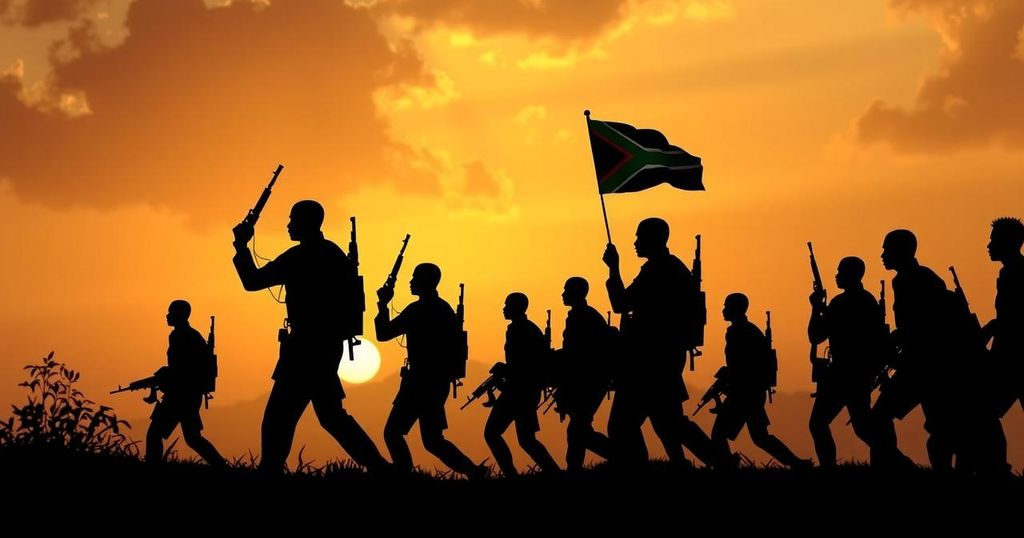Repatriation of Freedom Fighters’ Remains in South Africa
The remains of 42 South African freedom fighters, who died in exile during the struggle against apartheid, have been repatriated from Zimbabwe and Zambia. They were received with solemnity in Pretoria. This effort aims to provide closure to families while educating future generations about the sacrifices made during the anti-apartheid movement. A formal ceremony is scheduled to honor the remains before they are returned to their families for reburial.
The remains of 42 South African freedom fighters who perished in exile while confronting apartheid arrived in their homeland on Wednesday, as confirmed by government officials. These remains, exhumed from Zimbabwe and Zambia, were ceremoniously received at the Waterkloof Air Force Base in Pretoria by government representatives and distraught family members, symbolizing a poignant moment of closure for those who lost loved ones during the protracted struggle against white minority rule. The initiative is part of a broader governmental effort to honor the memories of liberation fighters who, due to oppression, faced exile in neighboring countries. Many activists sought refuge abroad to evade arrest by the apartheid regime, while others ventured out to secure military training for their eventual return to South Africa. Notably, the African National Congress (ANC), which was led by Nelson Mandela, relocated its base to Zambia when it was declared illegal in South Africa. Unfortunately, numerous activists met their demise in foreign lands and were interred there. Among the returned remains are prominent figures such as Duma Nokwe, Florence Mophosho, and Basil February. During a Heritage Day event held recently, Deputy President Paul Mashatile emphasized the significance of this repatriation effort, stating that it serves as a vital educational tool for future generations about the sacrifices made in the anti-apartheid struggle. He remarked, “As a national memory project, this initiative aims to commemorate, celebrate, educate, promote, preserve, conserve, and provide a durable testament to South Africa’s road to freedom.” A formal homecoming ceremony, hosted by President Cyril Ramaphosa, is set to occur on Friday, where the remains will be returned to their families for reburial. Moreover, the government is actively engaged in future repatriation efforts, including the remains of South African activists from countries such as Lesotho, Ethiopia, Tanzania, and Angola. Deputy Defense Minister Bantu Holomisa expressed the aspiration that these endeavors will facilitate the return of more individuals who perished in dire circumstances abroad, stating, “We welcome them back to connect with their families.”
The repatriation of the remains of South African freedom fighters is an essential component of the nation’s reconciliation efforts post-apartheid. Many activists sought refuge in other nations during the apartheid regime’s oppressive rule, where they continued their fight against racial injustice. This movement seeks to honor their sacrifices, educate the younger generations, and foster a deeper understanding of the historical context of South Africa’s struggle for freedom.
In summary, the repatriation of the remains of 42 South African freedom fighters marks a significant step in recognizing the sacrifices made during the anti-apartheid struggle. This initiative not only provides closure for grieving families but also serves to educate and inspire future generations about the importance of remembering the past. The ongoing efforts to bring home more remains from various countries reflect a commitment to honoring those who fought for justice and equality.
Original Source: www.newsday.com




Post Comment